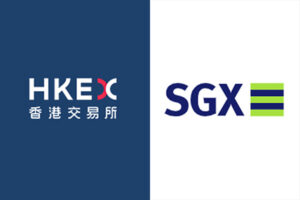Forefront of the Global Green Economy: Singapore’s 2025 Business Trends and Global Investment Opportunities
As Singapore enters 2025, the nation stands at a pivotal point where business growth is closely intertwined with sustainability. The global push for decarbonization, coupled with Singapore’s strategic role as a financial and innovation hub, has created a unique environment for companies to integrate green practices into long-term strategy.
This article will explore how Singapore is shaping its business landscape around the green economy, what opportunities and challenges lie ahead, and how organizations can position themselves to thrive in an era where sustainability is not just a responsibility but also a competitive advantage.
Singapore’s Strategic Role in the Global Green Economy
Green Economy as a Core Growth Engine
The Singapore government has explicitly positioned the green economy as a driver of long-term competitiveness. Through the Singapore Green Plan 2030, policies emphasize carbon reduction, renewable energy, and green financing. This alignment reflects both domestic priorities—such as energy security and urban resilience—and global expectations from investors, regulators, and consumers who increasingly demand sustainable practices.
For businesses, this means sustainability is no longer peripheral; it is becoming central to strategy. Enterprises that adopt low-carbon operations and circular economy practices will be better positioned to secure funding, partnerships, and long-term growth.
Financial Hub for Green Capital
Singapore’s well-established status as Asia’s financial hub gives it a unique edge in driving green investment flows. The Monetary Authority of Singapore (MAS) has introduced green finance taxonomies, launched transition financing schemes, and actively promotes ESG disclosure standards.
Global asset managers and sovereign wealth funds are increasingly channeling capital into sustainable infrastructure, renewable energy projects, and climate-focused innovation. As a result, companies operating in Singapore can access a sophisticated financial ecosystem that rewards credible sustainability roadmaps with more favorable funding.
Regional Leadership and Global Partnerships
Singapore also functions as a bridge between developed markets and emerging economies in Southeast Asia. Many regional economies are still heavily dependent on coal and carbon-intensive industries. Singapore’s role is to provide the financing, technology, and regulatory frameworks that help these markets transition.
At the same time, Singapore strengthens global cooperation by partnering with the EU, Japan, and Australia on carbon services, clean energy technologies, and supply chain decarbonization. This dual role—supporting regional growth while meeting international standards—enhances Singapore’s global relevance.
Key Business Trends in Singapore’s Green Transition
The Rise of Green Finance
One of the most pronounced trends in 2025 is the rapid expansion of green finance. Banks and investment funds in Singapore are increasingly prioritizing ESG-linked loans and bonds. For example, real estate developers with green-certified projects receive preferential financing, while manufacturing firms with clear decarbonization plans enjoy lower borrowing costs.
This movement signals that sustainability metrics are now as important as traditional financial indicators. Businesses that fail to integrate ESG into their strategy risk losing not only investor confidence but also access to capital.
Renewable Energy and Carbon Management
While Singapore’s geographic constraints limit large-scale deployment of renewables, the country is aggressively investing in regional power grids and carbon markets. Solar remains the main renewable source, but the government is also working with neighbors to import clean electricity.
Carbon services are another fast-growing sector. Singapore is positioning itself as a hub for carbon trading and verification, creating opportunities for consultancies, auditors, and tech firms that can provide transparent and reliable solutions for companies navigating net-zero commitments.
Digitalization Meets Sustainability
Digital transformation is merging with sustainability goals. Technologies such as artificial intelligence, blockchain, and IoT are being used to track carbon footprints, improve energy efficiency, and optimize logistics.
For example, blockchain-enabled carbon credits provide greater transparency in voluntary carbon markets, while AI-driven analytics help companies predict energy consumption patterns and reduce waste. This convergence of tech and sustainability is expected to create new business models, particularly for SMEs offering niche solutions.
Green Consumerism and Workforce Expectations
Consumers in Singapore are showing stronger preferences for eco-friendly products, from sustainable food packaging to electric mobility. Businesses that align with these preferences not only gain market share but also build brand trust.
At the same time, younger professionals are demanding that employers demonstrate authentic sustainability commitments. For companies, embedding ESG into workplace culture is now as much about attracting and retaining talent as it is about compliance or reputation.
Infrastructure and Urban Solutions
Singapore’s urban development continues to prioritize resilience and sustainability. Green buildings, smart energy grids, and low-emission public transport are areas of rapid growth. Construction firms and technology providers that contribute to these goals stand to benefit from public-private collaborations and government incentives.
Investment Opportunities in Singapore’s Green Economy
Green Infrastructure and Smart Cities
Singapore’s commitment to urban sustainability creates strong opportunities in green infrastructure. The city-state is upgrading transport systems, expanding green-certified buildings, and developing resilient water and waste solutions.
- Transport
Investments in electric vehicle (EV) charging networks and autonomous mobility services are growing rapidly. Global automotive and energy firms are partnering with local operators to establish EV ecosystems, including battery storage and recycling. - Buildings
Singapore’s Building and Construction Authority (BCA) continues to push for higher Green Mark standards, offering incentives for developments that exceed energy efficiency benchmarks. This is particularly relevant for investors in property development, facility management, and green retrofitting technologies. - Urban Solutions
Smart energy grids, flood management systems, and cooling networks are attracting capital as climate adaptation becomes an urgent priority. Engineering firms and startups providing AI-driven solutions for predictive maintenance and efficiency stand to gain.
Renewable Energy and Cross-Border Power Projects
Singapore alone cannot generate enough renewable energy to meet future demand, making regional collaboration critical.
- Power Imports
Projects are underway to import renewable electricity from Malaysia, Indonesia, and Australia via subsea grids. Investors in large-scale solar, wind, and hydro projects in the region can benefit from Singapore’s role as an anchor buyer. - Energy Storage
Battery technology and hydrogen development are emerging as priority areas. Pilot projects in green hydrogen imports and fuel cells present opportunities for both industrial and logistics applications. - Service Providers
Consultancy, engineering, and certification firms offering expertise in renewable integration, carbon accounting, and risk management can capture rising demand from multinational corporations (MNCs) pursuing net-zero targets.
Sustainable Finance and Green Capital Markets
Singapore’s ambition to be Asia’s top hub for sustainable finance presents significant investment avenues.
- Green Bonds and Loans
Issuances continue to rise, with real estate, transport, and manufacturing firms among the largest issuers. Institutional investors can tap into these instruments for stable, ESG-aligned returns. - Transition Finance
Financing mechanisms that support hard-to-abate sectors (e.g., petrochemicals, shipping, steel) are expanding. Private equity funds and venture capital firms are seeking opportunities in companies with credible decarbonization strategies. - Carbon Services
Exchanges such as Climate Impact X (CIX) position Singapore as a trusted marketplace for voluntary carbon credits. Investors and corporates can participate by trading credits, supporting high-quality carbon projects, or building technology to improve verification and transparency.
Technology, Digitalization, and Innovation
Singapore’s strong digital ecosystem provides fertile ground for innovation in green technology.
- CleanTech Startups
Companies focusing on carbon capture, bio-based materials, or sustainable agriculture technologies receive strong support from incubators and accelerators. - Digital Platforms
Firms offering digital tools for ESG reporting, supply chain traceability, or emissions monitoring are in high demand as regulators tighten disclosure requirements. - R&D and Public-Private Partnerships
Singapore actively funds innovation through agencies like Enterprise Singapore and the National Research Foundation, creating opportunities for international firms to collaborate on pilot projects and commercialization.
Consumer and Lifestyle Sectors
Sustainability is reshaping consumer markets as well.
- Food and Agriculture
The “30 by 30” goal—producing 30% of nutritional needs locally by 2030—has spurred growth in urban farming, alternative proteins, and agritech. Investors in vertical farming, food tech, and supply chain solutions can capitalize on both domestic and export opportunities. - Retail and Lifestyle
Eco-conscious products, from fashion to household goods, are gaining traction. Brands that demonstrate authenticity and circular economy practices (e.g., resale platforms, refill models) are building stronger customer loyalty. - Tourism and Hospitality
Hotels and attractions are rebranding around sustainability, from energy-efficient operations to eco-tourism experiences. This trend offers long-term opportunities for operators and investors targeting Asia’s growing middle-class travelers.
Workforce and Human Capital Development
A successful green economy requires skilled talent. Singapore is investing heavily in training programs for green jobs, ranging from renewable energy engineers to ESG auditors.
- Upskilling Initiatives
Government programs like SkillsFuture provide subsidies for workers to acquire sustainability-related skills. - Corporate Training
Multinationals and SMEs alike are investing in in-house training to ensure their workforce is equipped for green transformation. - HR and Consulting Opportunities
Firms specializing in recruitment, talent development, and organizational change can support businesses adapting to new sustainability requirements.
Challenges and Future Outlook
Structural and Resource Constraints
Despite strong ambition, Singapore faces structural limitations in scaling its green economy. Land scarcity restricts the expansion of large renewable energy farms, while limited natural resources require reliance on imports for energy and raw materials. This dependency exposes Singapore to geopolitical risks and supply chain disruptions. Investors must therefore factor in regional cooperation and cross-border partnerships as part of their strategies.
Cost and Transition Barriers
Sustainability often entails higher upfront costs. Green-certified buildings, renewable energy adoption, and decarbonization technologies can require substantial investment before long-term savings are realized. For small and medium-sized enterprises (SMEs), the cost of compliance with new sustainability standards or ESG reporting can feel overwhelming. Financial support, whether through subsidies, green loans, or innovative financing models, will be critical to ensure inclusivity across the business ecosystem.
Regulatory Complexity and Global Standards
While Singapore is building a robust regulatory framework, companies must navigate evolving global standards. International clients increasingly expect alignment with frameworks such as the Task Force on Climate-Related Financial Disclosures (TCFD) or the International Sustainability Standards Board (ISSB). This creates pressure for Singapore-based firms to upgrade data management systems, enhance reporting transparency, and adopt more sophisticated risk management practices. Investors should view this as both a compliance challenge and an opportunity to support the development of ESG consulting and digital solutions.
Workforce Readiness and Talent Gaps
The transition to a green economy requires specialized skills in renewable engineering, carbon accounting, sustainable supply chain management, and more. However, demand for such expertise currently outpaces supply. Without sufficient talent, projects may face delays or underperformance. Closing this gap will depend on reskilling initiatives, international talent attraction, and greater industry-academia collaboration. Companies that proactively develop their people strategy will be better positioned to compete.
Global Competition for Green Investment
Singapore’s aspiration to become Asia’s premier hub for sustainable finance and innovation comes amid intensifying regional competition. Hong Kong, Tokyo, and Shanghai are also enhancing their sustainable finance ecosystems, while Southeast Asian neighbors offer lower-cost green manufacturing opportunities. Singapore’s differentiator will lie in combining regulatory stability, financial credibility, and technological sophistication to attract long-term investors. Nonetheless, maintaining this edge requires constant policy innovation and regional engagement.
Opportunities Beyond 2025
Looking beyond the immediate horizon, Singapore is poised to leverage its strategic strengths in connectivity, finance, and innovation to expand its influence in the global sustainability movement. Several trends merit close attention:
- Green Hydrogen and Next-Generation Fuels
Pilot projects underway today may become large-scale imports and industrial applications by the early 2030s. - Digital ESG Ecosystems
Blockchain, AI, and IoT-enabled tools will revolutionize how companies track and report sustainability metrics, with Singapore likely to be a testbed for deployment. - Regional Leadership
As ASEAN economies accelerate their sustainability agendas, Singapore can act as the hub for financing, standards-setting, and capacity building. - Consumer Transformation
Growing environmental awareness among younger generations will drive demand for sustainable products and services, influencing corporate strategies across sectors.
Final Outlook
The path ahead for Singapore’s green economy is both challenging and promising. Constraints such as land scarcity, high transition costs, and skills shortages are real, but they are counterbalanced by strong government leadership, innovative financial mechanisms, and a proactive business community.
For companies and investors, the key will be strategic alignment: identifying opportunities that match Singapore’s strengths, partnering in regional renewable initiatives, and contributing to talent and innovation development. Those who move early and decisively will not only benefit from financial returns but also play a role in shaping Asia’s sustainable future.
Summary
Singapore’s pursuit of a green economy and sustainable development is more than a policy agenda — it represents a strategic redefinition of the nation’s growth model. By aligning economic competitiveness with climate resilience, Singapore positions itself as both a regional leader and a global partner in the transition toward sustainability. The combined momentum of government planning, private sector innovation, and cross-border collaboration is creating a dynamic ecosystem where businesses can thrive while advancing environmental goals.
For global investors, the message is clear: opportunities in Singapore extend well beyond traditional sectors. From renewable energy imports and sustainable finance to green buildings, food security, and digital ESG solutions, the breadth of potential is vast. At the same time, challenges such as cost pressures, talent shortages, and rising competition from other financial hubs cannot be overlooked. The companies that will succeed are those prepared to adapt, innovate, and engage deeply with Singapore’s long-term sustainability vision. As the world accelerates its transition to net zero, Singapore offers a compelling case study — and a tangible investment gateway — for those ready to participate in shaping the future of Asia’s green economy.
Feel free to contact us
MAY Planning provides advice on green finance and consumer & workforce sustainability in Singapore. We also offer support on solutions about technology & digital sustainability.
References:
1)Sustainability in Singapore. (n.d.). Singapore Economic Development Board (EDB). https://www.edb.gov.sg/en/our-industries/sustainability.html
2)A City of Green Possibilities. (n.d.). Singapore Green Plan 2030. https://www.greenplan.gov.sg/
3)Sustainable Finance. (n.d.). Monetary Authority of Singapore. https://www.mas.gov.sg/development/sustainable-finance
4)Sustainability. (n.d.). Tech in Asia. https://www.techinasia.com/tag/sustainability


